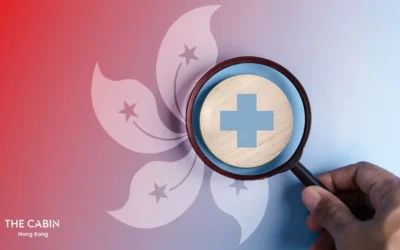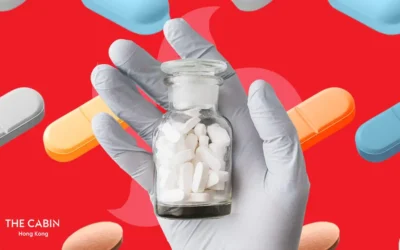Anyone who is battling substance addiction is at risk of overdosing, the leading cause of drug-related deaths. Learn here what the signs of overdose look like and some basic but crucial measures to take when someone is overdosing that could mean the difference between life and death.

Drug overdoses are the primary cause of drug-related deaths worldwide. Sadly, the number of deaths as a result of drug overdose, particularly in America, has continued to rise in recent years. Taking these statistics into consideration, it is prudent to learn what steps to take if an overdose should occur. It could save someone’s life.
What is an Overdose?
An overdose occurs when too much of a drug is ingested and a person’s metabolism cannot clear it quickly enough to avoid unintended side effects. Though the symptoms of drug overdose differ depending on one’s tolerance level and the drug that they have consumed too much of, it is best to act if you think something is wrong.
People generally overdose on three types of substances: depressants, alcohol and stimulants.
Depressant overdose
Depressants drastically reduce a person’s heart and breathing rate. Benzodiazepines and opiates, such as Xanax, Valium, Oxycontin and heroin are depressants. When a depressant overdose occurs, the person has a high risk of respiratory failure, which could result in permanent brain damage, coma or even death.
Signs to watch out for include shallow or no breathing, blue fingertips or lips, severe disorientation, little or no responsiveness, inability to be woken, gurgling noises or snoring.
Alcohol overdose
Alcohol overdose is often referred to as ‘alcohol poisoning.’ Since alcohol is also classified as a depressant, its effects on the central nervous system are similar to that of benzodiazepines and opiates. Severe cases of alcohol poisoning can cause cardiac arrest, choking and respiratory failure. Combining alcohol with other depressants can also intensify their effects, which can increase the likelihood of overdose.
The signs of alcohol poisoning include lack of coordination, severe disorientation, vomiting during sleep, spasms, seizures, slow or irregular breathing, and bluish, pale or clammy skin.
Stimulant overdose
Stimulant overdoses are often caused by methamphetamines, such as ice or speed; or cocaine which is another stimulant. Stimulant overdoses, statistically speaking, tend to be less deadly than depressant overdoses, although they are still incredibly dangerous. These types of overdoses can result in seizure, stroke, psychosis and heart attack.
Common signs of stimulant overdose include difficulty breathing, chest pain, severe headache, confusion, disorientation, high body temperature without perspiration, and unconsciousness.
Risk Factors for Overdose
According to the United Nations Office on Drugs and Crime’s World Drug Report, “Most overdose cases occur when substances — opioids, for example — are mixed with other sedating substances, particularly alcohol and benzodiazepines. It may also occur when a person has had a short period of abstinence (e.g., after incarceration or having gone through a short-term episode of detoxification), resulting in lowered tolerance, and misjudges the dose.”
Many times people suffering from addiction overdose due to their body’s increase in tolerance for their drug of choice. As a person’s addiction worsens, they often end up increasing their drug dosage in order to achieve the same results. He or she may even feel the need to take large doses of the drug because consuming smaller doses can result in withdrawal symptoms. This can cause a severely addicted person to walk a very thin line between intoxication and overdose.
Overdoses can also occur as a result of varying drug purity levels. Most drug substances that people obtain on the street have not been tested, so users are simply trusting that the dealer is selling them what they have paid for. Given the drastically varying levels of purity in street drugs, illicit drug use is fraught with overdose risk.
Steps to Take
1. Call for help
If you think that someone has overdosed, do not wait for whatever substance this person has overdosed on to wear off – take action right away and call for medical help. In many instances, drug overdose deaths happen because people are too scared to call authorities or an ambulance because of the illegal drugs involved. Do not let fear stop you from potentially saving a person’s life.
If this person is conscious, do your best to find out what substance they have taken and how much. If possible, collect and give the drug or pills to the emergency personnel when they arrive, or take them to the emergency room with you. Even to call emergency services, unless absolutely necessary, do not leave this person alone. Keep them awake as much as possible.
At the hospital, the person’s stomach may be pumped, they may be given activated charcoal by mouth to absorb the drug, and a psychiatric evaluation may be ordered if the overdose was intentional.
2. Use the recovery position
Make sure that this person is either standing or sitting upright or lying on his or her side – the ‘recovery position.’ Do not encourage vomiting. However, if this happens, this side position will reduce choking risk. Be sure that the vomit is clearing as much as possible.
Do not feed them anything – food, drink, and especially not another drug such as caffeine. And do not put him or her into a shower or bath, as sudden temperature changes could affect them in unknown ways.
3. Perform rescue breathing or CPR
In most cases, home intervention such as the aforementioned will not be enough, so, again, it is best to ensure that help is on the way. Some overdoses, such as those caused by opiates, require another form of immediate action.
If a person is unconscious and with no signs of breathing or has shortness of breath, then you should firmly rub your knuckles around their chest bone.
The next step may require you to perform rescue breathing, known as CPR. Many overdose deaths are related to respiratory failure, which is why rescue breathing is an important method to try when it comes to an overdose as it can help prevent brain damage and even death.
Getting Professional Help
Receiving treatment for addiction as soon as possible is crucial for preventing overdose. The earlier an addict learns how to develop healthy coping skills, and manage their addiction triggers and other related issues, the better the chances of living an addiction-free life.
At The Cabin Hong Kong, we provide leading integrative addiction treatment. Our highly experienced addiction specialists will treat the underlying causes of your addiction and help you develop instinctive coping and recovery skills through our unique Recovery Zones treatment model. If you are seeking support in overcoming your drug addiction, contact us today to find out what options are available.


